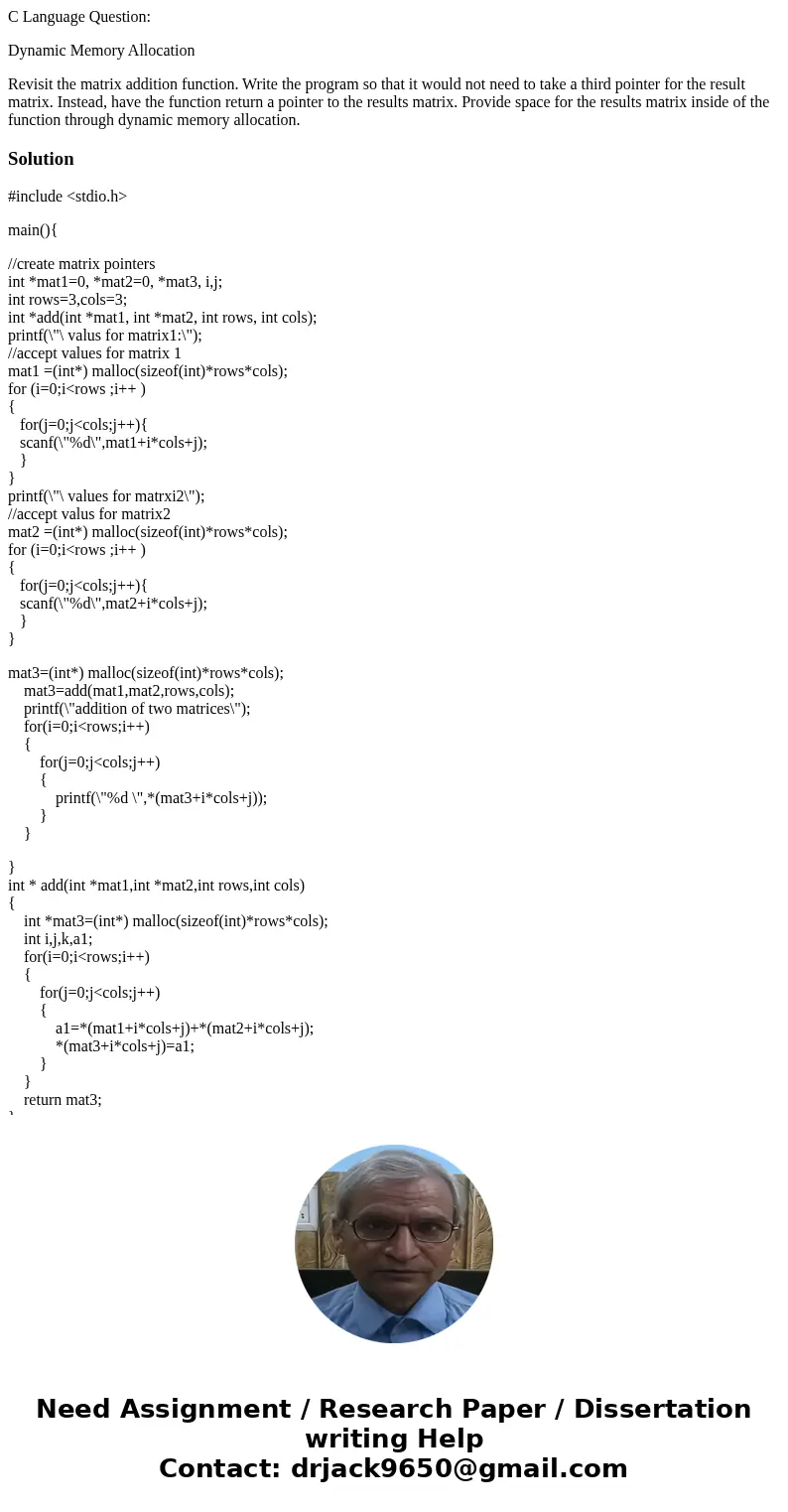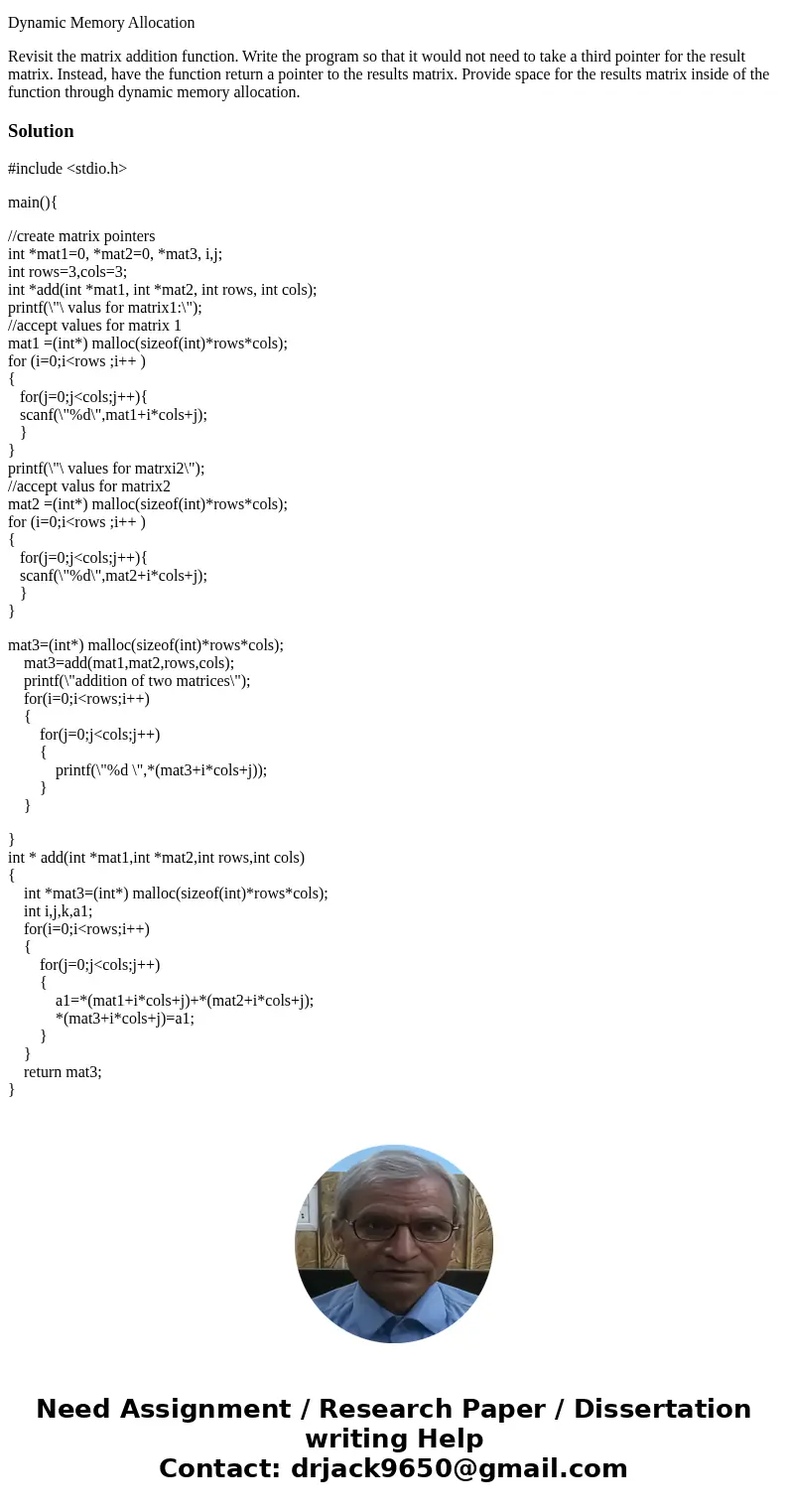C Language Question Dynamic Memory Allocation Revisit the ma
C Language Question:
Dynamic Memory Allocation
Revisit the matrix addition function. Write the program so that it would not need to take a third pointer for the result matrix. Instead, have the function return a pointer to the results matrix. Provide space for the results matrix inside of the function through dynamic memory allocation.
Solution
#include <stdio.h>
main(){
//create matrix pointers
int *mat1=0, *mat2=0, *mat3, i,j;
int rows=3,cols=3;
int *add(int *mat1, int *mat2, int rows, int cols);
printf(\"\ valus for matrix1:\");
//accept values for matrix 1
mat1 =(int*) malloc(sizeof(int)*rows*cols);
for (i=0;i<rows ;i++ )
{
for(j=0;j<cols;j++){
scanf(\"%d\",mat1+i*cols+j);
}
}
printf(\"\ values for matrxi2\");
//accept valus for matrix2
mat2 =(int*) malloc(sizeof(int)*rows*cols);
for (i=0;i<rows ;i++ )
{
for(j=0;j<cols;j++){
scanf(\"%d\",mat2+i*cols+j);
}
}
mat3=(int*) malloc(sizeof(int)*rows*cols);
mat3=add(mat1,mat2,rows,cols);
printf(\"addition of two matrices\");
for(i=0;i<rows;i++)
{
for(j=0;j<cols;j++)
{
printf(\"%d \",*(mat3+i*cols+j));
}
}
}
int * add(int *mat1,int *mat2,int rows,int cols)
{
int *mat3=(int*) malloc(sizeof(int)*rows*cols);
int i,j,k,a1;
for(i=0;i<rows;i++)
{
for(j=0;j<cols;j++)
{
a1=*(mat1+i*cols+j)+*(mat2+i*cols+j);
*(mat3+i*cols+j)=a1;
}
}
return mat3;
}


 Homework Sourse
Homework Sourse